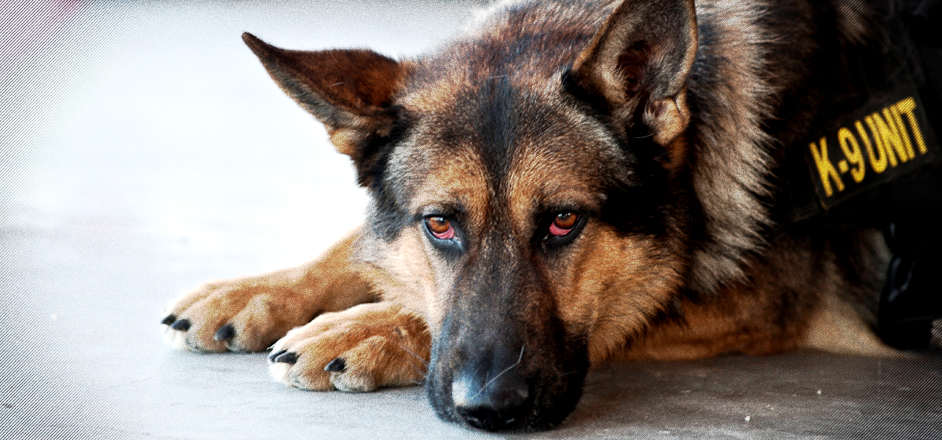The rise of the marijuana industry has been both swift and turbulent. Laws are shifting, industries are building, jobs are changing and police dogs are in need of new training …
That last point is sort of specific, but an important note nevertheless. Because, here’s the thing: in a world where pot is legal, and yet still federally listed as a “Schedule 1” substance, police drug dogs — who have been rigorously trained to sniff out marijuana — are going to cause some ugly legal issues.
And in fact, they already have.
This past July, a Colorado court of appeals ruled that drug sniffing dogs cannot be used as probable cause for a police search. The decision came after a pot-sniffing dog named Kilo, with the Moffat County Police Department, helped put away Craig, Colorado, resident Kevin McKnight. He was pulled over in February of 2015 for a minor traffic violation, and when Kilo indicated that there was “contraband” in the vehicle, officer Bryan Gonzales searched it, discovered a meth-pipe and arrested McKnight.
The ensuing legal battle determined Officer Gonzales did not have probable cause to search Mcknight’s car and the case was overturned. The court ruled Colorado residents have a “legitimate expectation of privacy” since marijuana is legal, even though drug dogs still search for it.
There’s an obvious problem here, and it isn’t the dogs who are exhaustively trained for up to a year before they go into the field. The problem is their training hasn’t kept up with the high times. Police drug dogs are conditioned to detect meth, heroine, ecstasy, cocaine and marijuana; but they cannot communicate which drug it is they sense, or how much of it might be present.
"Dogs that can sniff for marijuana get called into question more in court and can make things more difficult."
That’s like the dog telling his partner, “Okay, woof, there’s definitely something in here — it might be illegal guns, dead babies, homemade explosives or… ice cream. I can’t tell you which, but it is definitely one of those.”
The first, and most appealing option to be done is to train the dogs to speak like human beings. Once that communication barrier comes down, they can easily tell their handlers what drugs they’re detecting, and even what quantity they think they smell … However, many will call this an “unrealistic” solution.
Another option is to simply retrain the dogs to ignore the scent of marijuana. But that could be both expensive and time consuming. Everyone knows teaching an old dog new tricks is no cake walk. But how about un-teaching an old dog, old tricks? It sounds difficult, and that’s because it is. And when you consider that the average age of retirement for these dogs is 10 years old, it doesn’t seem like a very cost-effective plan to retrain all of the nation’s drug dogs.
There is a third option, though: as Colorado’s current generation of drug dogs get old and retire, police departments across the state can replace them with rookies who don’t even know what pot smells like.
That’s exactly what’s happening with the Rifle Police Department K9 unit. Tulo, their current K9, is entering the twilight of his career — he’s 9 years old and he’s served on the Rifle Police Force for 6 years as the partner of officer Garrett Duncan. He's a good boy, but his retirement is looming, and the Rifle PD needed to find a replacement for him.
Thanks to the enthusiastic fundraising of a 12-year-old named Carter Faulk, the Rifle PD was recently able to obtain not just one, but two new peppy puppys to follow in Tulo’s paw-prints. Except, these dogs will be unlike their predecessor in one key way: they will have a deliberate indifference to dank.
“Dogs that can sniff for marijuana get called into question more in court and can make things more difficult,” Officer Garrett Duncan, Tulo’s handler, told the Aspen Times. That’s why they have decided that Jax and Maki, the new K9 trainees, have to be cool with cannabis. So, sometime next year, when they go into the field, they’ll be looking for the hard stuff and that’s it.
Which, is the way it should be. No offense to Tulo, or Kilo, or any of the other drug dogs out there (it’s not their fault how they were trained), but any drug detector that isn’t up to date with what’s legal and what isn’t is a liability to The People and their privacy.




Leave a Reply